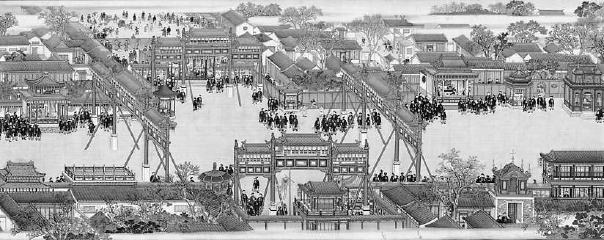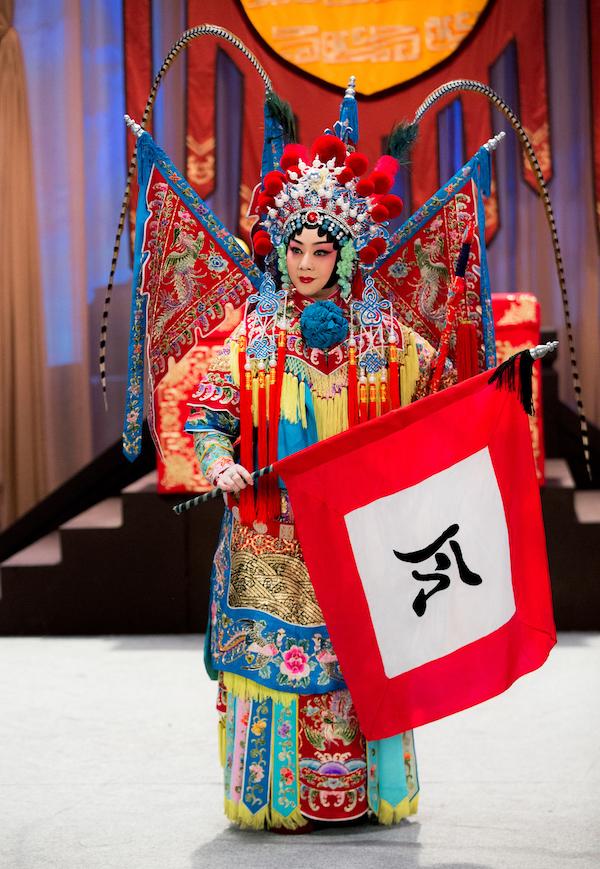From the Huangshan Mountain to the Yanshan Mountain
The formation of modern Beijing Opera has many historical factors, and a large number of people and groups are involved in the construction of modern Beijing Opera. But the origin of Beijing Opera is the “Hui Troupe Entering Beijing” event that took place from 1790 to 1803. The Hui Troupe, a music group, completely changed the opera style in Beijing and established the true Beijing Opera based on it.
History of Beijing Opera
The history of Beijing Opera begins in 1790. In 1790, on the 80th birthday of Aisin Gioro Hongli, then Emperor of the Chinese Empire, the then Governor of Fujian and Zhejiang worked together with the water transport officials of the Beijing-Hangzhou Canal to perform the opera in 1790. At that time, the Hui Troupe “Sanqing” performed in Yangzhou City was sent to Beijing to celebrate the emperor’s birthday. Then the “Sanqing” Huizhou troupe stayed in Beijing and started a history of more than ten years of Huizhou troupes entering Beijing. During this period, a large number of Huizhou troupes entered Beijing. In the following hundred years, it absorbed Qin Opera and Han Opera based on Kun Opera and developed into the current Beijing Opera(4).
Performance of Beijing Opera
Beijing Opera, which started from the Hui Troupe’s arrival in Beijing and started to integrate other local dramas, can be said to have the most comprehensive form of dramatic performance and a high degree of popularity, Therefore, Beijing Opera can become a representative of Chinese traditional drama culture. Beijing Opera has four performance skills: singing, speaking, dance-acting, and combat. Beijing Opera’s music and arias have ‘patterns’ to follow. There are also specific prosodic requirements for the libretto. The canons of hands, eyes, body, and steps govern dance-acting and combat skills. Corporeal movements are led by the movement of breath controlled by the heart (referring to the mind in a Western sense)(1). As a representative of Chinese Opera, Beijing Opera also contains the three characteristics of Chinese drama: drawl, accent, and flat style. As a representative of Chinese drama, Beijing Opera also contains the three characteristics of Chinese drama: drawl, Qiang Style, and Board style. A drawl is something that continues after a sentence or paragraph has finished. Qiang style is based on one word as the unit of measurement. The basic structure formed by the synchronized movement of lyrics and music is called Qiang sentence, and the structural form of Qiang sentence is Qiang style. Board style is the structural form of various board types such as adagio, medium board, loose board, etc.(2)
The creation of Beijing Opera
Beijing Opera has a lot of classical repertoire, and performers need to constantly learn these classical repertoires and develop and adapt them, but basically, the overall content and outline remain unchanged(3). Moreover, Beijing Opera also incorporates a large number of classic operas from other local operas. For example, the Beijing Opera version of the opera “Mu Guiying Takes the Command” was adapted from Henan Opera by Mei Lanfang(4). This also reflects that Beijing Opera, as a representative of traditional Chinese drama, represented the integration of China’s excellent traditional drama culture and an inclusive thought and spirit when the Hui Troupe came to Beijing. The method of Beijing Opera creation is also a reflection of this thought and spirit.
References
(1): Li Ruru. Singing, speaking, dance-acting, and combat; mouth, hands, eyes, body, and steps – from training to performance in Beijing Opera (Jingju). April 26, 2012. Singing, speaking, dance-acting, and combat; mouth, hands, eyes, body, and …: Discovery Service for Ohio State University (ohio-state.edu)
(2):刘正维(Zhengwei Liu). 戏曲音乐三绝(Three unique features of opera music). January 1, 2002. 戏曲音乐三绝: Discovery Service for Ohio State University (ohio-state.edu)
(3):Jeff Todd Titon. WORLDS OF MUSIC. September, 2015. Sixth Edition.
(4)张永和(Yonghe Zhang).徽班进京如何影响京剧的诞生?(How did the arrival of the Hui Troupe in Beijing affect the birth of Beijing Opera?).Beijing Evening News.November 24. 徽班进京如何影响京剧的诞生?_古都风韵_首都之窗_北京市人民政府门户网站 (beijing.gov.cn)
(5)梅兰芳(Mei Lanfang). 我怎样创作《穆桂英挂帅》(How I created “Mu Guiying Takes Command”). March 31st 2019. 梅兰芳:我怎样创作《穆桂英挂帅》 (sohu.com)

